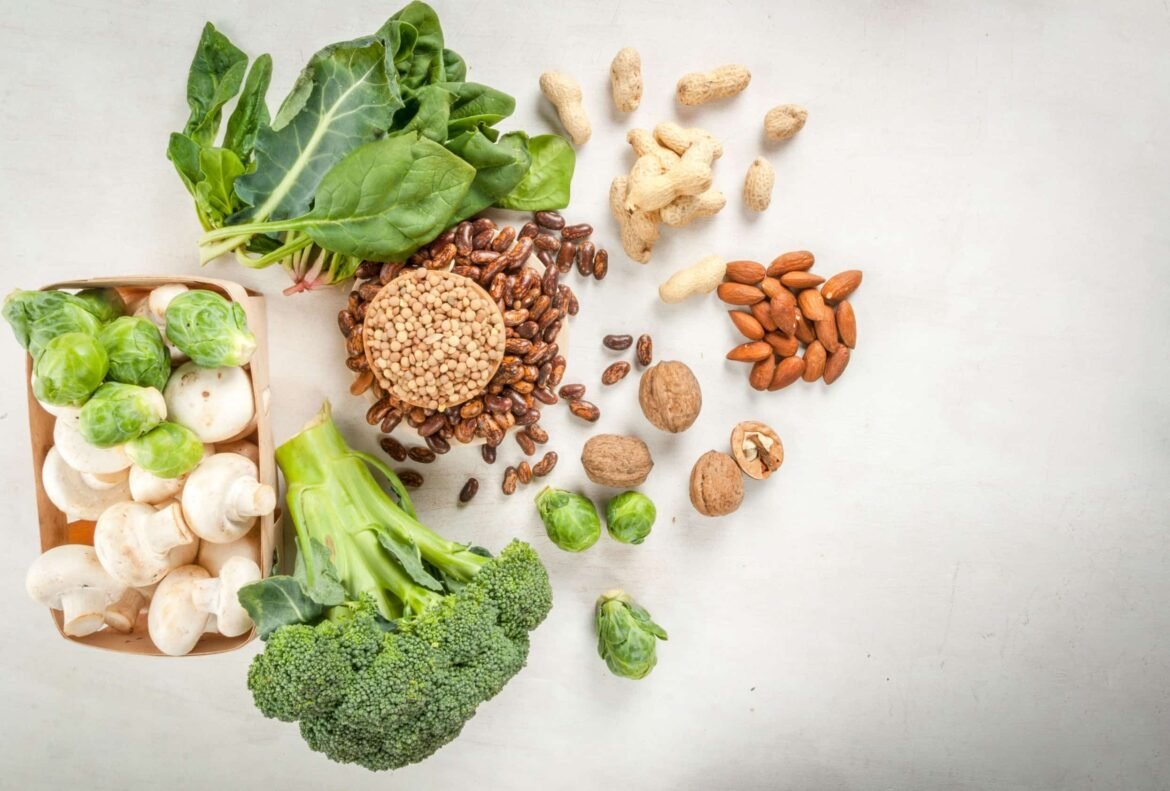In case you’ve even considered becoming a veggie lover or vegan, you’ve likely experienced one inquiry again and again: “How might you get sufficient protein?” Yes, animal items are universally wealthy in protein—yet that doesn’t infer that veggies can’t coordinate in such a matter. So which vegetables have the most protein to add up to your diet?
Why is protein important in the diet?
Protein is vital in any eating regimen, particularly for competitors and those attempting to get thinner. It’s fundamental for building and keeping up bulk, keeping you feeling full among suppers, and guaranteeing that each cell in your body works appropriately.
Changing to an eating regimen with fewer animal items can be amazingly sound, yet you should ensure you’re not missing anything significant.
“Obviously, it’s possible to get the entirety of the protein you need from a plant-based or veggie lover diet,” says Diana Sugiuchi, R.D.N., organizer of Nourish Family Nutrition. “However, it takes some wanting to make certain you’re getting fundamental amino acids and nutrients and minerals, especially iron and B nutrients.”
Protein and vegetables.
To benefit maximum possible from a plant-based eating routine, you ought to eat “an assortment of grains, vegetables, seeds, nuts, and vegetables consistently,” clarifies Jerlyn Jones, R.D.N., L.D., proprietor of The Lifestyle Dietitian. “Pick entire, raw food assortments, like soybeans as tofu, to benefit with protein intake.”
Protein-rich foods that we need at all times!
Both Jones and Sugiuchi note that there’s no precise definition for a high-protein vegetable, yet certain assortments stand apart from the group.
Per current Food and Drug Administration (FDA) rules, grown-ups ought to burn through, in any event, 50 grams of protein in a 2,000-calorie diet every day, with around 15 to 20 grams for each feast. (Some exploration even recommends knocking that to 30 grams for each feast, especially breakfast, for ideal appetite management.)
Thus, for those of you pondering, vegetables can give the entirety of the protein you need to flourish. Your body will surely be grateful to you for it, as well.
Vegetables that have the most protein.
Here are 10 of the greatest protein vegetables to eat, regardless of whether you’re going plant-based.
1. Spinach
Protein: 6 grams for every 1 cup, cooked
Besides being truly useful for you, spinach offers unprecedented healthy benefits, and the medical advantages of spinach are various. The leafy green is stacked with treats like calcium, folic corrosive, iron, fiber, and nutrients K and C. Far superior; it’s not difficult to toss into plates of mixed greens, smoothies, and bowls.
2. Asparagus
Protein: Per one cup, 4.25 grams, cooked
As of now, Asparagus is an adored veggie. However, its high protein content doesn’t do any harm. Whether prepared with eggs, seared with sugar-snap peas, or cooked close by clam mushrooms and pasta, it’s the foundation of innumerable plant-based suppers. Additionally, it’s plentiful in folate and nutrients K, A, and C.
3. White Mushrooms
Protein: 4 grams for every 1 cup, cooked
All mushrooms, from shiitake to clam, have a decent measure of protein. Despite that, white mushrooms have the most—and are the absolute universal. Toss them in fundamentally any supper for an increase in umami and protein.
4. Chickpeas
Protein: 7 grams for each half cup, cooked
The combo of fiber and protein in chickpeas makes for one solid bean. The majority of us know and love chickpeas from hummus. However, they’re ready to change into nearly anything, from rich falafel to crunchy, prepared bites. They’re particularly acceptable whole inside soups, mixed greens, and even crepes.
5. Sweet potatoes
Protein: 5 grams for everyone; huge potato, cooked
Not to be outperformed by their somewhat more protein-pressed cousins, sweet potatoes are as yet incredible wellsprings of the stuff. They function admirably at any feast, from breakfast smoothies to gut-accommodating meals. Sweet potatoes are additionally wealthy in beta-carotene, which advances solid vision, skin, and immune system.
6. Broccoli
Protein: 5 grams for each 1 cup, cooked
Broccoli’s not just an amazing wellspring of fiber—it’s likewise a shockingly great approach to arrive at your everyday protein objective. You can’t turn out badly with a vegetable with malignancy forestalling properties. We love it in a pan-fried food, yet you can generally steam, heat, or puree the vegetable with pretty much anything.
7. Green Peas
Protein: For every 1/2 cup, 4 grams, cooked
“Habitually neglected as being pedestrian, [green peas] are consistently accessible in the frozen veggie segment,” Sugiuchi clarifies. She prefers them for their adaptability, whether filled in as a side, blended into grains like rice, pureed with broccoli, or mixed into a soup. Green peas are additionally high in nutrients A, K, and C.
8. Soybean Sprouts
Protein: For every 1/2 cup, 4 grams, cooked
Whether on top of Korean bibimbap or in pan sear, soybean sprouts add crunch and a powerful portion of protein to plant-based plates. The veggies likewise offer fiber, guaranteeing you will not feel hungry between suppers or after supper. Also, in case you’re worn out on beans, sprouts let you change everything around without forfeiting protein.
9. Peanuts
Protein: 8 grams for every 1 ounce
Indeed, peanuts are vegetables, which means they’re actually a vegetable. A 1-ounce serving packs almost 8 grams of protein, making it (or peanut butter) an ideal nibble previously or after the exercise center. The vegetables are simple to cover up in nearly anything, from protein-pressed hotcakes to tacos.
10. Red Potatoes
Protein: 7 grams for everyone; huge potato, cooked
Red potatoes (and white ones) are loaded with protein; however, what makes them unique, Jones notes, is their significant degrees of dietary fiber and nutrient B6, which advances protein digestion. Heated, crushed, or broiled with veggies, red potatoes are a group pleaser that is covertly healthy.
